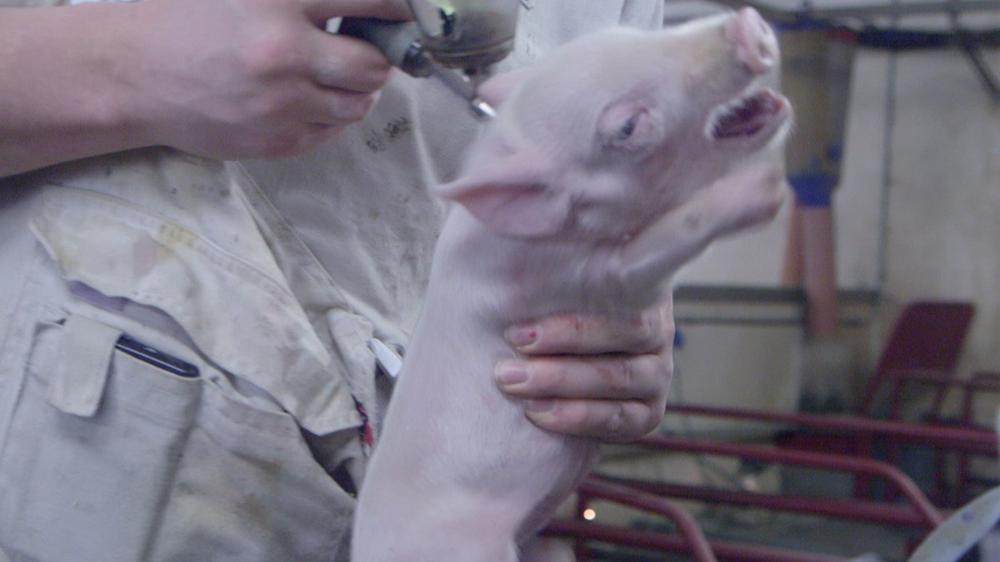New figures reveal spread of MRSA superbug on Northern Ireland's livestock farms

By Andrew Wasley
Previously unpublished figures have revealed how the MRSA superbug has continued to spread amongst Northern Ireland’s farm animals, some five years after it was first detected in the region’s pig herd.
Records obtained from Northern Ireland’s Department of Agriculture, Environment and Rural Affairs (DEARA) show that tests have detected 22 confirmed or suspected cases of Livestock-Associated (LA) MRSA since 2014.
The majority of cases - 19 - recorded by animal health officials have affected pigs, the records show, with three involving cattle. The superbug was detected as recently as March this year, with four cases found in 2018.
All but one of the findings was recorded as being from a particular type known as Livestock-Associated (LA) MRSA CC398.
CC398 is a variant of the more commonly known MRSA found in hospitals and its emergence has been linked to the use, and overuse, of antibiotics in livestock production.
It was first detected in the UK in 2013, in poultry birds, with the first cases affecting pigs reported - in Northern Ireland - the following year. Although the source of the initial Northern Ireland infection was never pinpointed, imported breeding pigs were blamed by some industry sources.
Livestock farms in Northern Ireland appear to have been affected by CC398 more heavily than in the rest of the UK.
The last official UK government figures - published in September 2017 - indicated that 7 cases of CC398 had been detected on farms in England and Wales - four involving pigs, two poultry and one cattle - and one case in Scotland, found in a game bird.
The figures from both Northern Ireland and the rest of the UK are unlikely to represent the complete picture of the superbug’s spread however, as there has been no routine government surveillance programme in place. The findings have been the result of testing carried out on specific diseased animals presented at government laboratories.
CC398 is endemic on pig farms in some European countries, particularly Denmark, where the superbug is thought to have contaminated about two-thirds of the country’s pig farms. Denmark is a key supplier of pork meat and breeding pigs to the UK.
In 2016, an investigation revealed how regulatory loopholes meant that Danish producers were not legally required to screen export pigs for CC398, and that livestock known to be infected could be freely exported.
In the UK, whilst imported pigs had to be guaranteed to be free from some diseases, CC398 was not one of them as it was not classified as a notifiable disease by UK health bodies.
The investigation highlighted how at least one supplier of Danish breeder pigs to the UK had previously tested positive for CC398.
CC398 is a potentially deadly bacteria in humans which can be resistant to antibiotics. Although people can carry the bacteria without any signs of illness, some can develop skin complaints, and the bug can cause life-threatening infections, including pneumonia and blood poisoning.
Above, watch a Guardian Films investigation into Livestock MRSA
In Denmark at least 12,000 people are thought to have contracted the superbug in recent years, with six deaths reported up until 2016.
CC398 can be transmitted by touching infected meat products or coming into contact with contaminated livestock or people, although it can be killed through cooking.
Tests have previously revealed that pork on sale in UK supermarkets was contaminated with CC398 - including both Danish imports and UK-produced meat.
Food safety chiefs responded to the meat contamination findings by emphasising that the risk of contracting MRSA through meat is “very low” when usual good hygiene and thorough cooking practices are observed.
A Food Standards Agency risk assessment, published in 2017, stated: “Current data suggest that LA-MRSA infection is rare in humans in the UK [and not] readily transmitted from person to person. To our knowledge there have been no reported foodborne outbreaks of LA-MRSA in humans in either the UK or worldwide.”
The UK pork industry has stated that “CC398 is considered by Defra, FSA and the Department of Health to be low risk to public and animal health, and not a food safety issue.”
They acknowledge the bigger risk to agricultural workers “with prolonged exposure to livestock”, and point to published guidance for those who work with livestock and in abattoirs.
READ: Drugged up - how antibiotic use on factory farms put MRSA in supermarket pork https://bit.ly/1O6fNEt
ENDS
